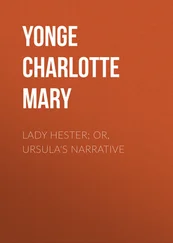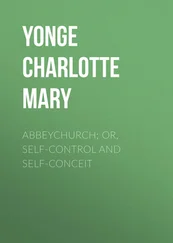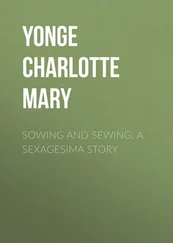Charlotte Yonge - Pioneers and Founders
Здесь есть возможность читать онлайн «Charlotte Yonge - Pioneers and Founders» — ознакомительный отрывок электронной книги совершенно бесплатно, а после прочтения отрывка купить полную версию. В некоторых случаях можно слушать аудио, скачать через торрент в формате fb2 и присутствует краткое содержание. Жанр: foreign_prose, foreign_religion, Философия, foreign_psychology, foreign_antique, на английском языке. Описание произведения, (предисловие) а так же отзывы посетителей доступны на портале библиотеки ЛибКат.
- Название:Pioneers and Founders
- Автор:
- Жанр:
- Год:неизвестен
- ISBN:нет данных
- Рейтинг книги:3 / 5. Голосов: 1
-
Избранное:Добавить в избранное
- Отзывы:
-
Ваша оценка:
- 60
- 1
- 2
- 3
- 4
- 5
Pioneers and Founders: краткое содержание, описание и аннотация
Предлагаем к чтению аннотацию, описание, краткое содержание или предисловие (зависит от того, что написал сам автор книги «Pioneers and Founders»). Если вы не нашли необходимую информацию о книге — напишите в комментариях, мы постараемся отыскать её.
Pioneers and Founders — читать онлайн ознакомительный отрывок
Ниже представлен текст книги, разбитый по страницам. Система сохранения места последней прочитанной страницы, позволяет с удобством читать онлайн бесплатно книгу «Pioneers and Founders», без необходимости каждый раз заново искать на чём Вы остановились. Поставьте закладку, и сможете в любой момент перейти на страницу, на которой закончили чтение.
Интервал:
Закладка:
“Firm wast thou, humble and wise,
Honest, pure, free from disguise;
Father of orphans, the widow’s support,
Comfort in sorrow of every sort:
To the benighted dispenser of light,
Doing and pointing to that which is right.
Blessing to princes, to people, to me,
May I, my father, be worthy of thee,
Wisheth and prayeth thy Sarabojee.”
Swartz had always been striving to be poor, and never succeeding. Living and eating in the humblest manner, and giving away all that came to him, still recognitions of services from English and natives had flowed in on him; and, after all the hosts of poor he had fed, and of churches and schools he had founded, he was an instance of “there is that scattereth and yet increaseth;” for the property he bequeathed to the Mission was enough to assist materially in carrying it on after his death. Moreover, Serfojee maintained the blind, lame, and decrepit members of his church, and founded an asylum for the orphan children; so that the good men, Gerické, Kohloff, Pohlé, and the rest, were not absolutely dependent on Europe for assistance; and this was well, since the Orphan-house at Halle and the Society at Copenhagen had in this long course of years ceased to send out funds.
But Swartz’s work under their hands continued to prosper. He had a sort of apotheosis among the heathen, such as he would have been the last to covet; for statues were raised to him, lights burnt before him, and crowns offered up. But about Palamcotta and throughout Tinnevelly there was one of those sudden movements towards Christianity that sometimes takes place. The natives were asking instruction from their friends, and going eagerly in search of the catechists and of Sattianadem, and even burning their idols and building chapels in preparation for the coming of more fully qualified teachers. Mr. Gerické made a tour among them in 1803, and found their hearts so moved towards the Gospel, that he baptized 1,300 in the course of his journey, and the work of Sattianadem and the catechists raised the number of converts to 4,000. This was, however, this good man’s last journey. On his return, he found that his only son, an officer in the Company’s service, was dying, and, under the weight of this and other troubles, his health gave way, and he died in the thirty-eighth year of his mission. Others of the original Danish and German missionaries likewise died, and scarcely any came out in their stead. Their places were, therefore, supplied by ordinations, by the assembly of ministers, of four native catechists, of whom was Nyanapracasem, a favourite pupil of Swartz. No Church can take root without a native ministry. But the absence of any central Church government was grievously felt, both as concerned the English and the Hindoos. There were more than twenty English regiments in India, and not a single chaplain among them all.
CHAPTER IV. HENRY MARTYN, THE SCHOLAR-MISSIONARY
Again do we find the steady, plodding labourer of a lifetime contrasted with the warm enthusiast, whose lot seems rather to awaken others than to achieve victories in his own person. St. Stephen falls beneath the stones, but his glowing discourse is traced through many a deep argument of St. Paul. St. James drains the cup in early manhood, but his brother holds aloft his witness to extreme old age.
The ardent zeal of the Keltic character; the religious atmosphere that John Wesley had spread over Cornwall, even among those who did not enrol themselves among his followers; the ability and sensitiveness hereditary in the Martyn family, together with the strong influence of a university tutor,—all combined to make such a bright and brief trail of light of the career of Henry Martyn, the son of the head clerk in a merchant’s office at Truro, born on the 18th of February, 1781. This station sounds lowly enough, but when we find that it was attained by a self-educated man, who had begun life as a common miner, and taught himself in the intervals of rest, it is plain that the elder Martyn must have possessed no ordinary power. Out of a numerous family only four survived their infancy, and only one reached middle age, and in Henry at least great talent was united to an extreme susceptibility and delicacy of frame, which made him as a child unusually tender and gentle in manner when at his ease, but fretful and passionate when annoyed.
Of course he fared as ill with his fellow-scholars at Truro Grammar School as he did well with the masters; but an elder boy took him under his protection, and not only lessened his grievances at the time, but founded a lasting friendship.
In 1795, when only fourteen, Henry Martyn was sufficiently advanced to be sent up as a candidate for a scholarship at Corpus Christi College, Oxford, and passed a very creditable examination, though he failed in obtaining the election. Eight years later, we find him congratulating himself in his journal on thus having escaped the “scenes of debauchery” to which his “profligate acquaintances” might have introduced him. Was Corpus very much changed, when, only eleven years after, John Keble entered it at the same age? Was it that Martyn’s Cornish schoolfellows were a bad set, or does this thanksgiving proceed from the sort of pious complacency which religious journalizing is apt to produce in the best of men?
The failure sent Henry back to work for two years longer at the Truro Grammar School, and when at sixteen he was entered at St. John’s, Cambridge (most peculiarly the college of future missionaries), he immediately made proof of his remarkable talent. Strange to say, although his father’s rise in life had begun in his mathematical ability, Henry’s training in this branch had been so deficient, and the study appeared so repugnant to him, that his first endeavour at Cambridge was to learn the proportions of Euclid by heart, without trying to follow their reasoning. This story is told of many persons, but perhaps of no one else who in four years’ time, while still a month under twenty, was declared Senior Wrangler.
This was in 1801, and the intervening time had been spent in hard study and regular habits, but neither his sister at home, nor a seriously-minded college friend, were satisfied with his religious feelings during the first part of the time, and he himself regarded it afterwards as a period of darkness. Indeed, his temper was under so little control that in a passion he threw a knife at a companion, but happily missed his aim, so that it only pierced the wall. The shock of horror no doubt was good for him. But the next step he recorded in his life was his surprise
Конец ознакомительного фрагмента.
Текст предоставлен ООО «ЛитРес».
Прочитайте эту книгу целиком, на ЛитРес.
Безопасно оплатить книгу можно банковской картой Visa, MasterCard, Maestro, со счета мобильного телефона, с платежного терминала, в салоне МТС или Связной, через PayPal, WebMoney, Яндекс.Деньги, QIWI Кошелек, бонусными картами или другим удобным Вам способом.
1
At first sight this seems one of the last misfortunes likely to have befallen a godly gentleman of Charlestown; but throughout the seventeenth and eighteenth centuries, the Algerine pirates swept the seas up to the very coasts of England, as Sir John Eliot’s biography testifies. Dr. James Yonge, of Plymouth, an ancestor only four removes from the writer, was at one time in captivity to them; and there was still probability enough of such a catastrophe for Priscilla Wakefield to introduce it in her “Juvenile Travellers,” written about 1780.
Читать дальшеИнтервал:
Закладка:
Похожие книги на «Pioneers and Founders»
Представляем Вашему вниманию похожие книги на «Pioneers and Founders» списком для выбора. Мы отобрали схожую по названию и смыслу литературу в надежде предоставить читателям больше вариантов отыскать новые, интересные, ещё непрочитанные произведения.
Обсуждение, отзывы о книге «Pioneers and Founders» и просто собственные мнения читателей. Оставьте ваши комментарии, напишите, что Вы думаете о произведении, его смысле или главных героях. Укажите что конкретно понравилось, а что нет, и почему Вы так считаете.












